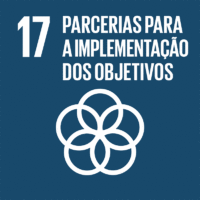Ciência_Iscte
Publicações
Descrição Detalhada da Publicação
The Portuguese version of the Personality Inventory for the DSM-5 in a community and a clinical sample
Título Revista
Personality and Mental Health
Ano (publicação definitiva)
2019
Língua
Inglês
País
Estados Unidos da América
Mais Informação
Web of Science®
Scopus
Google Scholar
Esta publicação não está indexada no Google Scholar
Esta publicação não está indexada no Overton
Abstract/Resumo
The Personality Inventory for DSM-5 (PID-5) measures the maladaptive traits of the model for personality and its disorders, as proposed in section III of the DSM-5. The current study aimed to examine whether the Portuguese PID-5 distinguished non-clinical participants (N = 1223, Mage = 36.73, standard deviation = 15.72) from clinical participants (N = 202, Mage = 43.82, standard deviation = 11.33) with respect to dysfunctional personality traits and to explore the PID-5 factor structure in both samples. The PID-5 scale medians were higher in the clinical sample than in the community sample. All analyses were statistically significant (p ≤ 0.001) with medium size effects. In the community sample, a five-factor structure emerged, and the factors resembled the PID-5 domains. However, in the clinical sample, a four-factor structure was retained, in which the Psychoticism domain did not clearly emerge. The composition of the clinical sample along with its small size may account for these unexpected results. Overall, the results provide evidence of the PID-5's ability to distinguish between psychiatric and community individuals and of the model's structural similarity in community samples, across studies and nationalities. More research is required to understand the Portuguese PID-5 structure in clinical samples.
Agradecimentos/Acknowledgements
--
Palavras-chave
Classificação Fields of Science and Technology
- Psicologia - Ciências Sociais
Registos de financiamentos
| Referência de financiamento | Entidade Financiadora |
|---|---|
| UID/GES/00315/2013 | Fundação para a Ciência e a Tecnologia |
Contribuições para os Objetivos do Desenvolvimento Sustentável das Nações Unidas
Com o objetivo de aumentar a investigação direcionada para o cumprimento dos Objetivos do Desenvolvimento Sustentável para 2030 das Nações Unidas, é disponibilizada no Ciência_Iscte a possibilidade de associação, quando aplicável, dos artigos científicos aos Objetivos do Desenvolvimento Sustentável. Estes são os Objetivos do Desenvolvimento Sustentável identificados pelo(s) autor(es) para esta publicação. Para uma informação detalhada dos Objetivos do Desenvolvimento Sustentável, clique aqui.

 English
English




